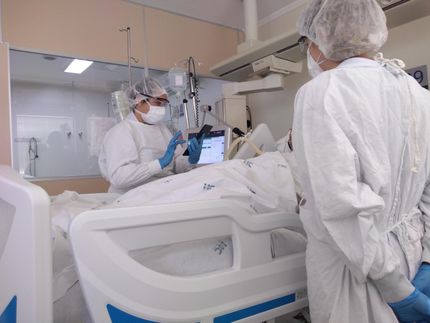Frost & Sullivan Predicts Growth for the Therapeutic Monoclonal Antibodies Market in Europe
Exploring the use of biologics to control rising disease incidence across the European therapeutics market
Efficient resource to therapy of complex disorders with lesser side-effects has accelerated growth of monoclonal antibodies based therapeutics against conventional chemical drugs.
However, high developmental costs constitute a major barrier for mid-segment market entrants. Growing market opportunities generated by innovative treatment methods and existing product success rate will boost market growth.
New analysis from Frost & Sullivan, Analysis of the Therapeutic Monoclonal Antibodies Market in Europe, finds that the market earned revenues of $19.01 billion in 2011 and estimates this to reach $42.37 billion in 2018, at a compound annual growth rate (CAGR) of 12.1% from 2011-2018.
Monoclonal antibodies (mAbs) are mono-specific high molecular weight complex proteins that are capable of post translational modifications, such as glycosylation. They are commonly used biologics for therapeutics and therefore are the fastest growing segment within the biotechnology market.
mAbs are predominantly used in the treatment of cancer and autoimmune and inflammatory disorders. Other therapy areas using mAbs include cardiovascular and infectious diseases, as well as organ transplants.
“Technological development within the biotech and genomic markets triggered the use of mAbs for therapeutics,” notes Frost & Sullivan Research Analyst Deepika Pramod Chopda. “With the rise in disease incidence rate and deterioration in human health conditions, the need for innovative and effective cure has been in great demand.”
High developmental costs act however as a major barrier for market entrants due to the complex production process, expensive biological and chemical materials and clinical trials, as well as required safety, efficacy and quality tests.
The average production cost of developing monoclonal antibodies ranges from $650-$750 million and takes about 8 to 9 years. This factor particularly hinders the entrance of small biotech companies and favours big pharma participants, because of their financial strength and capabilities.
On the other hand, the rise in other specialty pharmaceuticals with biotech invasion is expected to expand therapeutics at niche levels, thereby creating opportunities for bigger and better biologics business.
“Alliances between big pharma and small biotech firms for developing biologics is a key trend observed in this market,” adds Deepika. “High developmental costs due to expensive research and testing activities trigger the overall expenditure of mAbs. Alliances with financially adept companies will help small biotech firms to develop new technologies, thus encouraging product development within this market.”
Other news from the department business & finance
Most read news
More news from our other portals
See the theme worlds for related content
Topic world Antibodies
Antibodies are specialized molecules of our immune system that can specifically recognize and neutralize pathogens or foreign substances. Antibody research in biotech and pharma has recognized this natural defense potential and is working intensively to make it therapeutically useful. From monoclonal antibodies used against cancer or autoimmune diseases to antibody-drug conjugates that specifically transport drugs to disease cells - the possibilities are enormous

Topic world Antibodies
Antibodies are specialized molecules of our immune system that can specifically recognize and neutralize pathogens or foreign substances. Antibody research in biotech and pharma has recognized this natural defense potential and is working intensively to make it therapeutically useful. From monoclonal antibodies used against cancer or autoimmune diseases to antibody-drug conjugates that specifically transport drugs to disease cells - the possibilities are enormous


























































